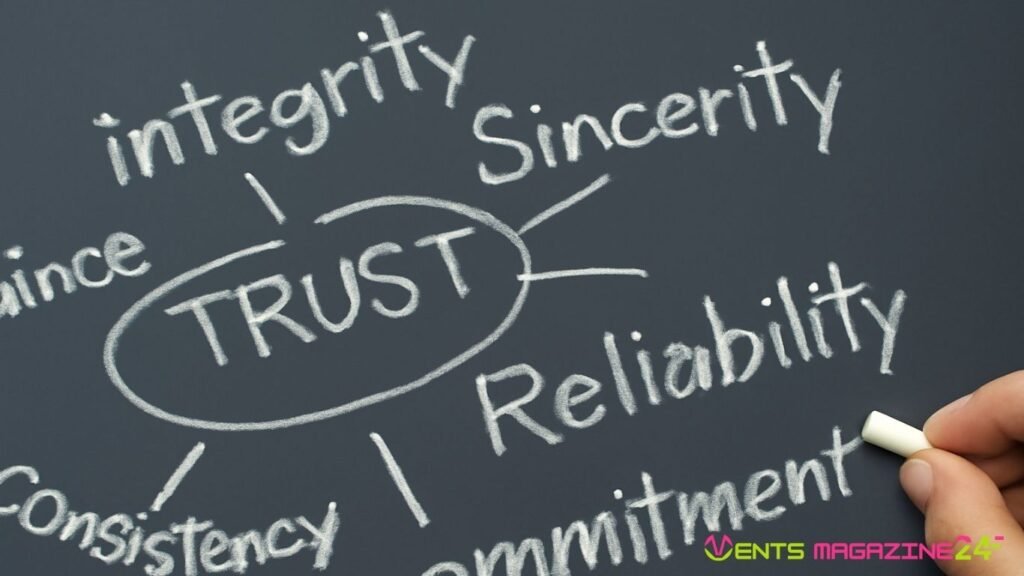In today’s ever-evolving world, the pace of change has never been faster. From technological advancements to shifting societal norms and environmental challenges, the need for organizations and individuals to adapt is at an all-time high. However, adapting does not mean sacrificing core values or ethical standards. This is where Dihward comes in—a powerful new framework designed to guide individuals and organizations through these changes while remaining anchored in ethical principles. By promoting ethical adaptability, Dihward is shaping the future of decision-making, leadership, and innovation.
This blog will dive deep into the essence of Dihward, exploring its core principles, practical applications, and why it is becoming crucial for success in the modern world. Whether you are a business leader, a policymaker, or an individual seeking growth, Dihward offers a comprehensive guide for staying true to your values while adapting to the complexities of today’s world.
What is Dihward?
At its core, Dihward is a framework for ethical adaptability. It empowers individuals and organizations to navigate an ever-changing world by staying grounded in their core values while embracing the need for change. The term “Dihward” combines the ideas of “Dih” (a core or foundation) and “ward” (protection or direction), signaling a system that protects fundamental values while guiding growth and innovation.
Dihward focuses on finding a balance between flexibility and ethics. In today’s world, rapid technological progress and societal shifts present challenges that require adaptive thinking. However, Dihward asserts that adaptability should not come at the expense of moral principles. Instead, it introduces a framework where change is approached responsibly, ensuring that ethical values guide every decision made.
The rise of Dihward marks a shift away from the traditional dichotomy of rigidity versus recklessness in decision-making. Instead of clinging to outdated practices or embracing change blindly, Dihward promotes a middle ground—ethical adaptability. This middle path allows individuals and organizations to evolve without losing sight of their integrity.
The Origin of the Term “Dihward”
The term Dihward is not an arbitrary creation but a carefully crafted concept that reflects the complexities of modern ethical challenges and societal dynamics. It emerges from the combination of two components: “dih-”, derived from dialectic, and “-ward”, referring to direction or movement. Together, these parts form a word that conveys progressive interaction and intentional movement toward ethical decision-making and inclusive growth.
Breaking Down “Dihward”
-
“Dih-” (from Dialectic):
The prefix “dih-” draws inspiration from the term dialectic, a concept deeply rooted in philosophy. Dialectic refers to the art of conversation or dialogue—an exchange of ideas that seeks to resolve contradictions through reasoned discussion. This represents an ongoing, evolving process of understanding, adapting, and negotiating differing perspectives. The focus is not on rigid or static solutions but rather on a dynamic interaction that evolves through thoughtful, reflective communication. In the context of Dihward, it emphasizes progressive dialogue—the continuous conversation between ideas, values, and actions that shape ethical decisions. -
“-ward” (Direction or Movement):
The suffix “-ward” suggests direction, movement, or a tendency towards a particular goal. It symbolizes forward progress, a drive toward improvement, and a focus on intentional change. In Dihward, it conveys the idea of guiding action toward a desired ethical outcome. It’s not just about change for the sake of change, but a purposeful, goal-oriented movement toward growth that is both ethical and inclusive.
Together, the two parts form Dihward, a term that embodies both dialogue and direction. It emphasizes that meaningful growth and decision-making require interaction, debate, and a conscious push toward ethical outcomes. It suggests that decisions should not be made in isolation but should involve collaboration and inclusive dialogue that takes into account diverse perspectives, values, and needs.
The Intentionality Behind Dihward
Unlike many urban or societal models that prioritize growth, efficiency, or design above all else, Dihward challenges us to think more critically about how we grow, who benefits, and what we sacrifice along the way. The traditional emphasis on growth often overlooks the ethical consequences of progress, focusing solely on speed or economic output. In contrast, Dihward calls for a deeper reflection on the ethical dimensions of development.
The key question posed by Dihward is: How do we ensure that the benefits of growth are distributed fairly, without compromising the values that define us as a society? Whether in business, urban planning, governance, or technology, Dihward asks us to reflect on how progress impacts all stakeholders and how we can ensure that no one is left behind in the rush toward modernity.
The Need for Ethical Adaptability
Why is ethical adaptability so important in today’s world? The answer lies in the complexities of the global landscape. We live in a time where technological, social, and environmental changes are accelerating at an unprecedented rate. These shifts often present challenges that push individuals and organizations to make quick decisions, sometimes in the face of ambiguity or uncertainty.
The key to thriving in such an environment lies in ethical adaptability. Dihward emphasizes that adaptability is essential, but it must be structured and guided by ethical considerations. Dihward is not about reacting impulsively or making decisions based on convenience. Instead, it’s about understanding that responsible change is necessary and that it should always align with a commitment to ethical standards.
This concept becomes especially important when we consider the rise of new technologies, like artificial intelligence (AI), automation, and data privacy concerns. These technologies can offer significant advancements but also pose moral dilemmas. The challenge is not to avoid change but to ensure that innovation serves humanity without causing harm. Dihward provides a framework that allows for responsible technological development—one that considers both innovation and ethical implications.
Similarly, in the face of climate change, social justice movements, and other global crises, Dihward offers guidance on how to respond with flexibility, compassion, and responsibility. It teaches that we can solve problems and address the needs of today without compromising our values or ethics for future generations.
The Core Principles of Dihward
The framework of Dihward revolves around six core principles. These principles serve as a guiding compass, helping individuals and organizations navigate change while adhering to their ethical foundations. Let’s break down these principles:
Value Anchoring
-
-
Value anchoring is the principle that ensures decisions remain rooted in core, non-negotiable ethical beliefs. In times of uncertainty or pressure to adapt quickly, it’s easy to forget the values that should guide our actions. This principle reminds us that while the world around us changes, our commitment to certain values should remain steadfast.
-
Structured Flexibility
-
-
Flexibility is crucial in a rapidly changing world, but it needs structure. Dihward advocates for adaptability within boundaries. Flexibility without structure can lead to inconsistency, while rigidity can lead to stagnation. Structured flexibility ensures that adaptability remains focused on the core values and objectives of an organization or individual.
-
Proactive Foresight
-
-
In an unpredictable world, preparing for disruption before it happens is vital. Proactive foresight encourages us to anticipate challenges and plan accordingly. It’s about thinking ahead, understanding potential risks, and being ready to adapt when necessary. But, importantly, it involves doing so with a strong ethical framework that considers the long-term impact of our actions.
-
Ethical Accountability
-
-
As we navigate change, we must take responsibility for our decisions and actions. Ethical accountability calls on individuals and organizations to stand by their commitments and ensure that their decisions align with their ethical beliefs. In times of uncertainty, accountability becomes more important than ever. It’s not enough to act; we must also act responsibly and be ready to answer for the consequences.
-
Resource Prudence
-
-
In a world facing resource shortages, climate change, and increasing demand for sustainability, resource prudence is essential. This principle calls for the responsible and efficient use of resources. Whether it’s financial resources, human capital, or natural resources, Dihward teaches us to use them wisely and with foresight.
-
Collective Synergy
-
-
Today’s challenges are global and interconnected. Dihward emphasizes that cooperation and collaboration are more effective than competition. By fostering collective synergy, we can create solutions that benefit not only individual stakeholders but also society at large. This principle encourages inclusivity, diversity of thought, and shared responsibility.
-
These six principles serve as the foundation of Dihward, guiding individuals and organizations to remain both flexible and ethically grounded in the face of change.
The Rise of Dihward: Why It Matters Now
The concept of Dihward has gained traction in recent years, and its relevance has only increased as we face complex challenges. There are several key factors driving the rise of Dihward:
-
Technological Disruption: The rapid pace of technological advancement requires businesses and individuals to adapt quickly. However, this swift change can lead to ethical blind spots, especially in industries like AI, automation, and biotechnology. Dihward provides a framework to navigate these technologies responsibly, ensuring they align with ethical principles.
-
Environmental and Social Responsibility: As concerns about climate change, social justice, and sustainability intensify, Dihward has emerged as a framework that encourages organizations to evolve in ways that benefit both people and the planet. It supports the idea that growth should not come at the cost of the environment or marginalized communities.
-
The Demand for Ethical Leadership: In an era where trust is at a premium, the need for ethical leadership has never been more pressing. Dihward empowers leaders to make decisions that uphold ethical standards, even in times of uncertainty. Organizations that embrace Dihward build trust and foster a strong reputation for integrity and responsibility.
-
The Global Interconnectedness of Challenges: Today’s issues, whether it’s a global pandemic, economic inequality, or environmental degradation, are interconnected. Dihward acknowledges the interdependency of challenges and promotes solutions that address these issues collaboratively, ensuring that no one is left behind in the pursuit of progress.
Real-World Applications of Dihward
As Dihward continues to rise in prominence, we see its application across various sectors, from business to education and technology. Here are a few real-world examples of how Dihward is being implemented:
1. Business and Corporate Responsibility
In the business world, Dihward encourages companies to adopt ethical adaptability by prioritizing sustainable and responsible practices. A company that uses Dihward principles will create a flexible, yet values-driven strategy, ensuring that growth does not come at the expense of the environment or workers’ rights. For instance, a tech company could embrace Dihward by implementing transparent data policies and ensuring AI systems are designed with fairness and accountability in mind.
2. Governance and Public Policy
Governments can also benefit from adopting Dihward principles. Policymakers are often tasked with making decisions that impact large populations and have long-term consequences. By adopting Dihward, they can ensure that policies are adaptable but remain aligned with ethical principles, particularly in areas like healthcare, privacy, and social justice.
3. Technology and Artificial Intelligence
The development of AI, automation, and data analytics presents numerous ethical dilemmas, particularly around privacy, bias, and fairness. Dihward offers a way forward, encouraging the creation of technologies that are not only innovative but also aligned with ethical standards. For example, Dihward can guide developers to design AI systems that are transparent, accountable, and inclusive, ensuring they benefit society as a whole.
4. Education and Personal Development
In education, Dihward promotes inclusivity, diversity of thought, and ethical decision-making. Schools and universities that embrace Dihward foster environments where students are encouraged to think critically and act responsibly. Similarly, on a personal level, Dihward guides individuals to make decisions that reflect their values, helping them adapt to change without losing their sense of self.
Benefits of Implementing Dihward
Organizations and individuals that implement Dihward experience a variety of benefits, ranging from improved decision-making to stronger relationships with stakeholders. Here are some key advantages of embracing Dihward:
Better Decision-Making: Dihward encourages individuals and leaders to make decisions that are not only flexible but also grounded in ethical principles. By incorporating ethical adaptability into the decision-making process, leaders can navigate complex situations with greater clarity and confidence.
Stronger Trust and Relationships: Trust is the cornerstone of any successful organization. By adhering to Dihward principles, organizations can build stronger relationships with their stakeholders, enhancing loyalty and cooperation. Transparency, empathy, and ethical decision-making help foster an environment where trust flourishes.
Fostering Innovation: Dihward promotes innovative thinking within an ethical framework. It encourages individuals and organizations to find new ways of solving problems without compromising their core values. This approach to innovation leads to sustainable, value-driven solutions that have a positive impact on society.
Resilience in the Face of Change: In a constantly changing world, resilience is critical. Dihward equips individuals and organizations with the tools needed to adapt to unexpected challenges without losing sight of their values. By embracing ethical flexibility, organizations can weather storms and continue to thrive in the face of adversity.
Enhanced Reputation: Organizations that embrace ethical practices and demonstrate adaptability are more likely to attract customers who value social responsibility. Dihward helps organizations build a reputation as ethical leaders, which enhances their standing in the marketplace and fosters loyalty among consumers.
How to Incorporate Dihward into Your Life or Organization
Incorporating Dihward into your personal or organizational life is a strategic process that begins with a commitment to ethical flexibility. Below are some steps to get started:
Assess Your Core Values: Whether for yourself or your organization, the first step in embracing Dihward is to identify and clarify your core values. These values will serve as the foundation for all future decisions, ensuring that your actions remain consistent with your principles.
Create an Open Dialogue: Foster a culture of transparency and open communication. Encourage team members or colleagues to share their perspectives, feedback, and concerns. This will create an environment where diverse viewpoints are valued, leading to more creative and effective solutions.
Invest in Ethical Training: Regularly train individuals on ethical decision-making and adaptability. These training sessions can help equip people with the skills and knowledge needed to navigate difficult situations with integrity.
Establish Success Metrics: Define success not only in terms of financial performance but also in terms of ethical standards and community impact. By measuring success in a balanced way, you ensure that long-term goals align with ethical practices.
Implement Feedback Loops: Continuously evaluate the effectiveness of your ethical framework. Collect regular feedback from stakeholders, and use this information to make adjustments and improvements as necessary.
Overcoming Challenges in Implementing Dihward
While Dihward offers numerous benefits, implementing its principles can present challenges. Some obstacles to overcome include:
-
Resistance to Change: People are often reluctant to adopt new frameworks or processes. Overcoming this resistance requires educating stakeholders on the value of ethical adaptability and the long-term benefits of Dihward.
-
Cultural Differences: In diverse teams or organizations, differing ethical perspectives can create conflicts. It’s important to approach these differences with sensitivity and understanding, fostering a culture of respect and inclusivity.
-
Resource Constraints: Some organizations may struggle with the time or financial resources needed to fully implement Dihward principles. Starting small and scaling the framework gradually can help overcome this challenge.
-
Measuring Ethical Impact: Traditional metrics of success focus primarily on financial outcomes. Measuring the ethical impact of decisions requires developing new metrics that assess social responsibility, transparency, and stakeholder trust.
The Future of Dihward
As the challenges of the modern world grow increasingly complex, the need for frameworks like Dihward will only increase. In the coming years, we can expect Dihward to be integrated into leadership development programs, corporate governance strategies, and educational curricula. The principles of Dihward will continue to shape the way we navigate change, ensuring that our growth is sustainable, responsible, and ethically grounded.
Conclusion
In a world that is changing faster than ever, Dihward offers a vital framework for those seeking to innovate and adapt without losing sight of their ethical foundations. By focusing on ethical adaptability, Dihward provides individuals, businesses, and governments with the tools they need to navigate uncertainty responsibly.
Whether you are making decisions in business, shaping public policy, or striving for personal growth, embracing Dihward helps ensure that you remain flexible while staying true to your values. The future of innovation, resilience, and ethical leadership lies in balancing adaptability with integrity, and Dihward is the key to achieving that balance.



